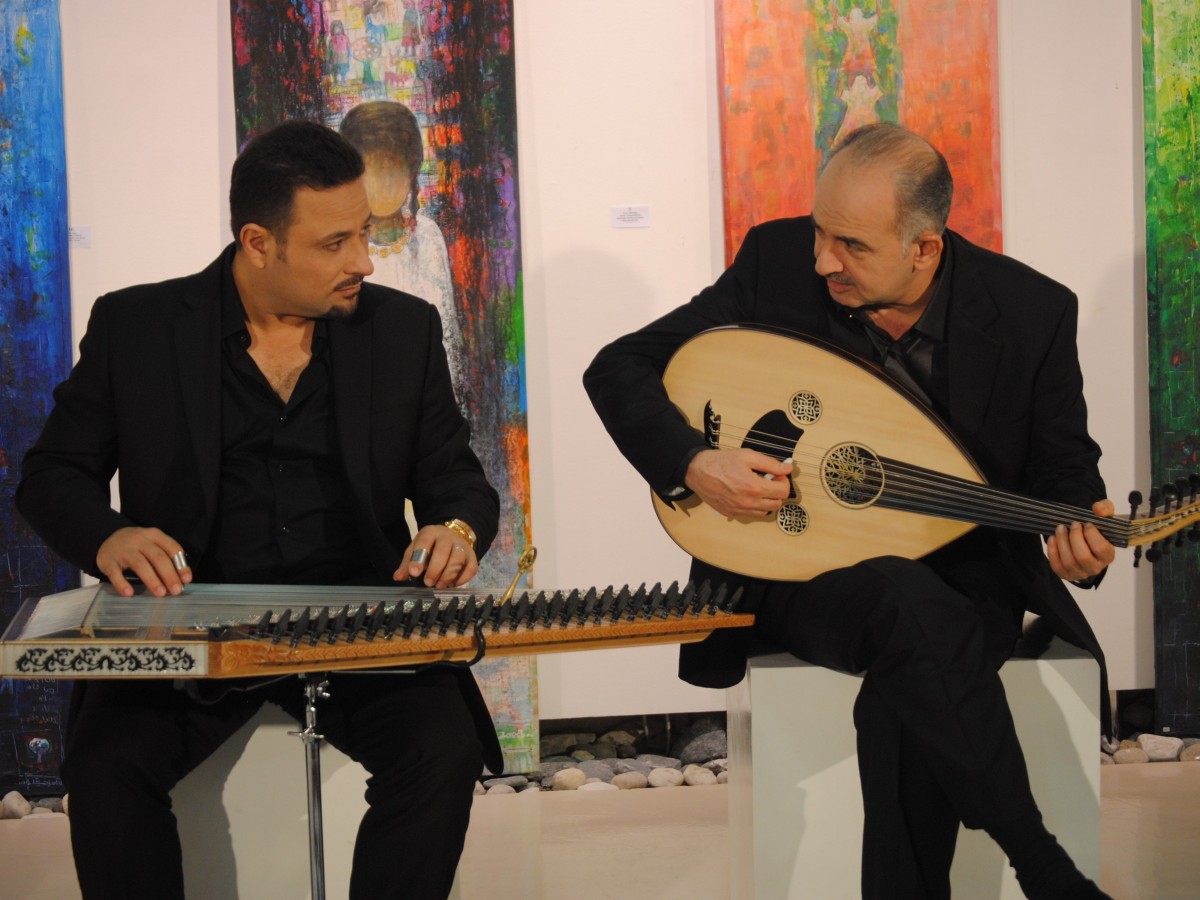
Two top musicians from Mesopotamia will be playing a programme of classical instrumental Iraqi maqam. Qanun player Hasan Falih and oud player Khalid Mohammed Ali have no intention of placing their technical virtuosity in the foreground, instead they want to convey the feeling with which they make their melodies sing. Studies have been made and even poems written on Khalid Mohammed Ali’s oud playing. Hasan Falih is conductor, composer and virtuoso qanun player. The maqam is an ancient melodic system and the basis of Arabian and Eastern classical music. The Iraqi variant is composed of a number of poetical pieces that are performed in short suites.
Part of the Qanun Dialogues concertseries
قانون (Qanun) means "law" in Arabic. The instrument was given its name because it sets the pitch for the other instruments and singer in traditional ensembles. Although the qanun can be traced as far back as the 10th century and originates from the Middle-East, it is also played in the Maghreb, West Africa and Central Asia as well as in the southeast of Europe. Even today, the 78-string trapeze-shaped wooden instrument still plays a key role in Arab and Turkish classical music. This season Moussem and BOZAR proudly present leading qanun players in ensemble, in duo and in solo concerts.
Two top musicians from Mesopotamia will be playing a programme of classical instrumental Iraqi maqam. Qanun player Hasan Falih and oud player Khalid Mohammed Ali have no intention of placing their technical virtuosity in the foreground, instead they want to convey the feeling with which they make their melodies sing. Studies have been made and even poems written on Khalid Mohammed Ali’s oud playing. Hasan Falih is conductor, composer and virtuoso qanun player. The maqam is an ancient melodic system and the basis of Arabian and Eastern classical music. The Iraqi variant is composed of a number of poetical pieces that are performed in short suites.
Part of the Qanun Dialogues concertseries
قانون (Qanun) means "law" in Arabic. The instrument was given its name because it sets the pitch for the other instruments and singer in traditional ensembles. Although the qanun can be traced as far back as the 10th century and originates from the Middle-East, it is also played in the Maghreb, West Africa and Central Asia as well as in the southeast of Europe. Even today, the 78-string trapeze-shaped wooden instrument still plays a key role in Arab and Turkish classical music. This season Moussem and BOZAR proudly present leading qanun players in ensemble, in duo and in solo concerts.